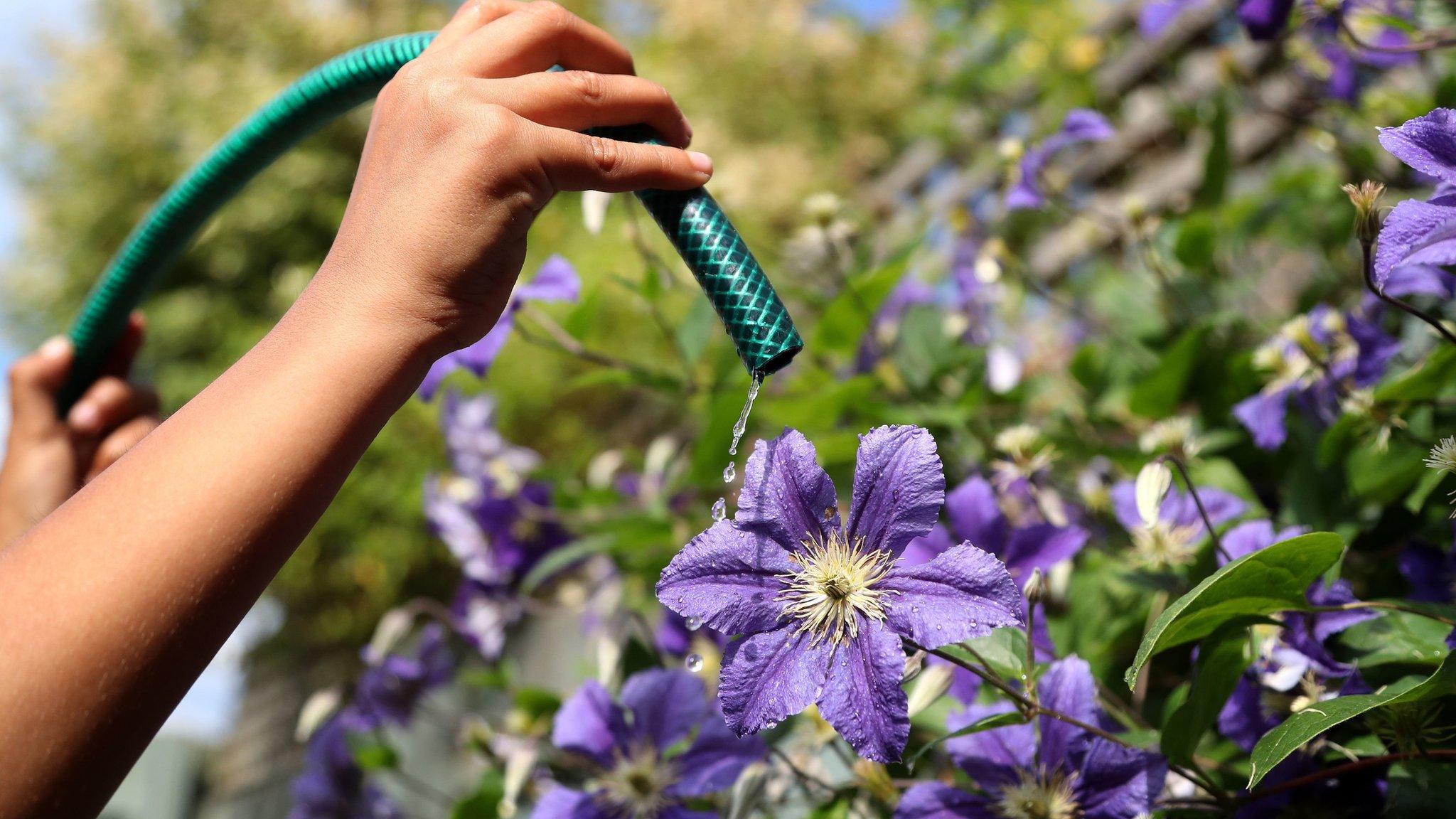Hosepipe ban in Cornwall to be lifted in September
- Published
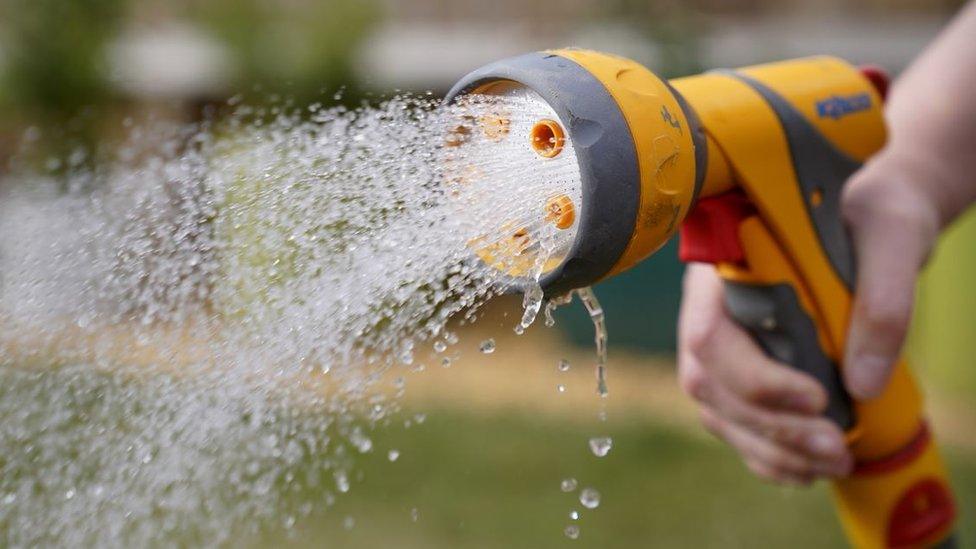
A hosepipe ban was introduced in Cornwall and a small part of north Devon on 23 August last year
A hosepipe ban across Cornwall and a small part of north Devon is to be lifted on 25 September, South West Water (SWW) has announced.
The company said the ban - which came into force almost a year ago on 23 August, 2022 - would be lifted following recent rainfall.
SWW stressed the region remains in official drought status and urged people to continue conserving water.
Most of Devon will continue to have a hosepipe ban.
SWW said water levels at Roadford Reservoir, which services much of Devon, would be reviewed "at the end of the peak tourist season".
'Positive developments'
It said levels at Colliford on Bodmin Moor, external were at 57% - higher than the 38% recorded at the same time last year.
At Roadford water levels remain at 57% - slightly higher than the 54% recorded at the same time last year.
SWW said "positive developments" ensured the hosepipe ban in the areas serviced by Colliford (all of Cornwall and a small part of north Devon) could be responsibly lifted.
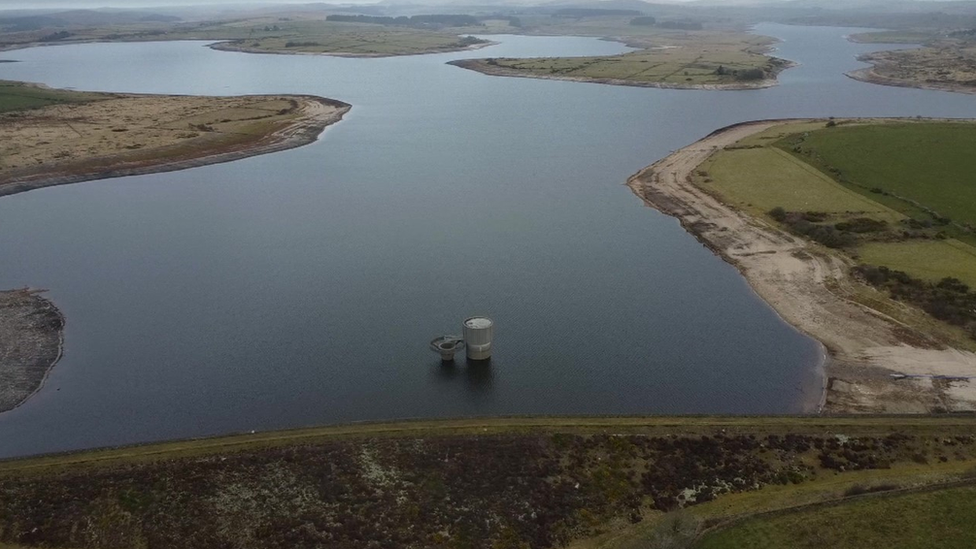
Colliford Reservoir in Cornwall is at 57% capacity, SWW says
The company said: "Since the restrictions have been in place, there have been positive developments due to the collaboration of customers, South West Water's investments, and recent rainfall.
"Colliford reservoir is at 57% storage, up 19% from last year.
"Climate change has shown how unpredictable weather patterns can be and we must continue to protect the region's rivers and beautiful natural resources.
"We want to emphasise that water is a valuable resource and urge residents, businesses, and visitors to use water responsibly and Save Every Drop."
It added the situation in Devon was "improving and we will continue to monitor".
However, the hosepipe ban is to remain across most of the county for the time being.
David Harris, SWW's drought and resilience director, said this was because weather patterns remained uncertain.
"We're nearly there in being able to make a responsible decision to lift that hosepipe ban [in Devon] but we're not quite there yet," he said.
"The weather has been so variable this year - we just haven't got the confidence to lift that yet and know that we're not going to have to impose further restrictions down the track."
He said conditions over the previous five months had been "very, very difficult".
"We had an incredibly hot year last year which drew our storages down - those storages didn't get recharged over winter as we would have hoped," Mr Harris said.
"It is climate change that is driving these weather patterns."

Analysis by Kirk England
I remember standing by Colliford reservoir in Cornwall last November, just as it had fallen to its lowest ever level and thinking… what happens if it runs dry?
It felt like a real possibility. It was at just 16% capacity.
We'd had the heatwave and the first water restrictions were brought in for Cornwall and a small part of north Devon in decades - this was the hosepipe ban.
Further key moments in our region's water story followed - South West Water's Stop the Drop Campaign, that offered people in Cornwall money off their bills to use less water to help Colliford - the key strategic reservoir that supplies drinking water for much of the county - to "recharge".
News followed of plans by SWW to desalinate seawater to provide drinking water and then in April an extension of the hosepipe ban to cover much of Devon came in.
Almost every day people would ask me: "When will I be able to wash my car?"
We now have the answer - if you are in Cornwall - from 25 September.

Devon-based environmental campaigner Jim Hunt, who has been monitoring reservoir levels across both counties, questioned why it had taken so long to lift the hosepipe ban.
"I'm very pleased it's been lifted at long last but I don't understand why it's taken so long," he said.
"It's been raining, raining and raining and the hosepipe ban is still in place. I don't think it's fair.
"The residents of Cornwall have been unable to wash their cars, they can't pressure wash their drives, they're paying their water bills… what are they getting in return?"
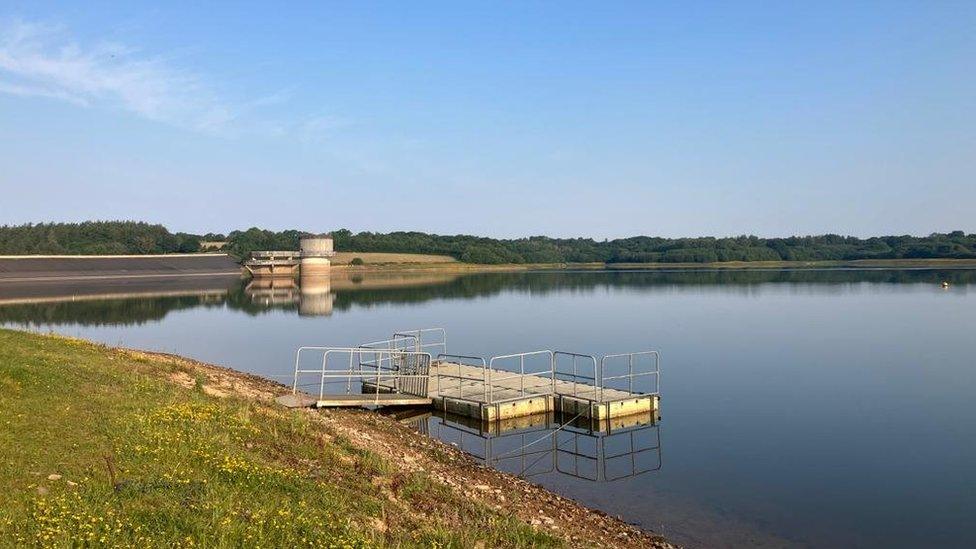
At Roadford water levels remain at 57% - slightly higher than the 54% recorded at the same time last year
Prof Liz Bentley, chief executive of the Royal Meteorological Society, said the UK needed to get better at managing its water resources.
"The UK still gets enough rainfall to manage over the course of the year," she said.
"Our climate has changed, it's become wetter, it's also become warmer and sunnier - you get periods when you get too much rain and periods when you don't get enough.
"The key here is how we can become more resilient, capture and store than rainfall when it falls and use it when we have periods without rainfall [and] drought conditions."
SWW said its investments in developing new water sources and building new infrastructure - such as pipe transfer schemes - would increase capacity in Cornwall by 45% by 2025.
It predicted there would be a 30% increase in capacity in Devon during the same period.

Follow BBC News South West on Twitter, external, Facebook, external and Instagram, external. Send your story ideas to spotlight@bbc.co.uk, external.
- Published29 June 2023
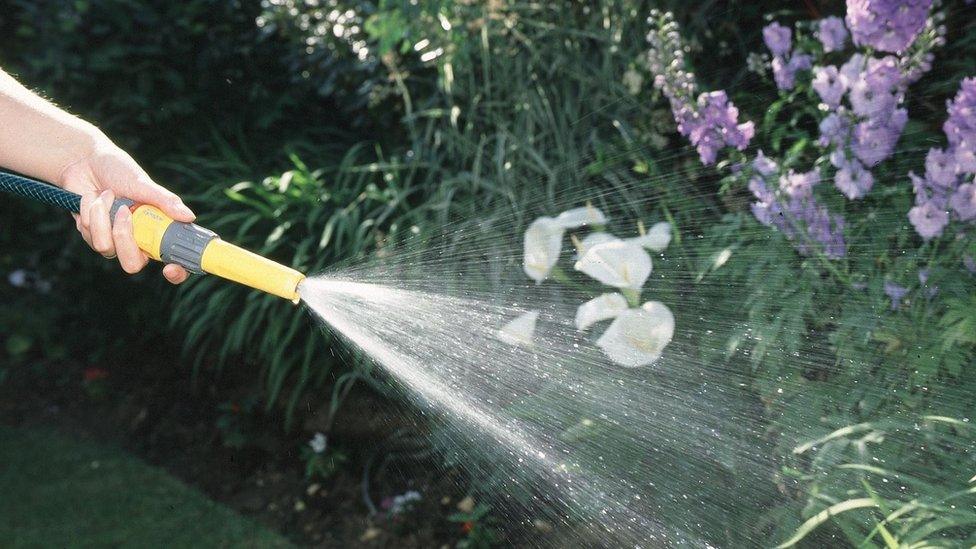
- Published7 March 2023
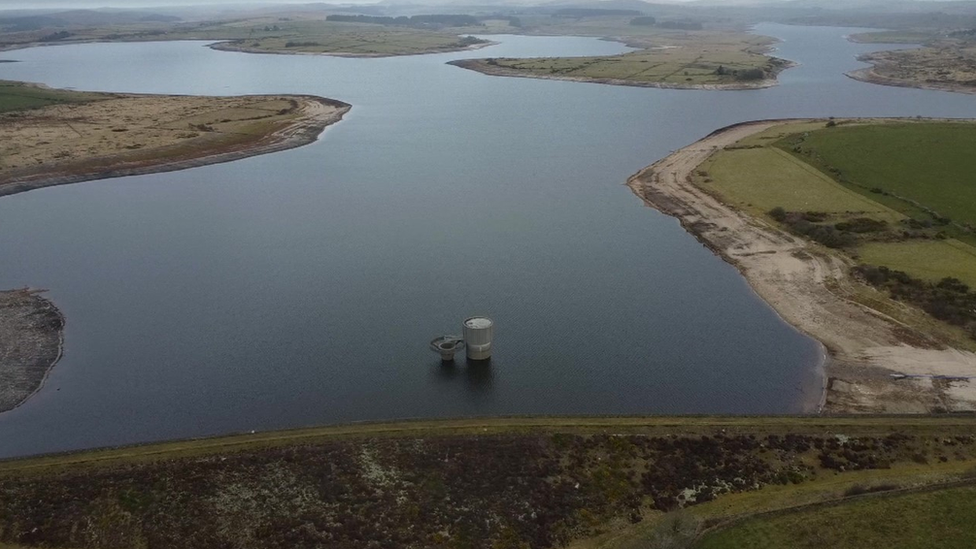
- Published15 August 2022
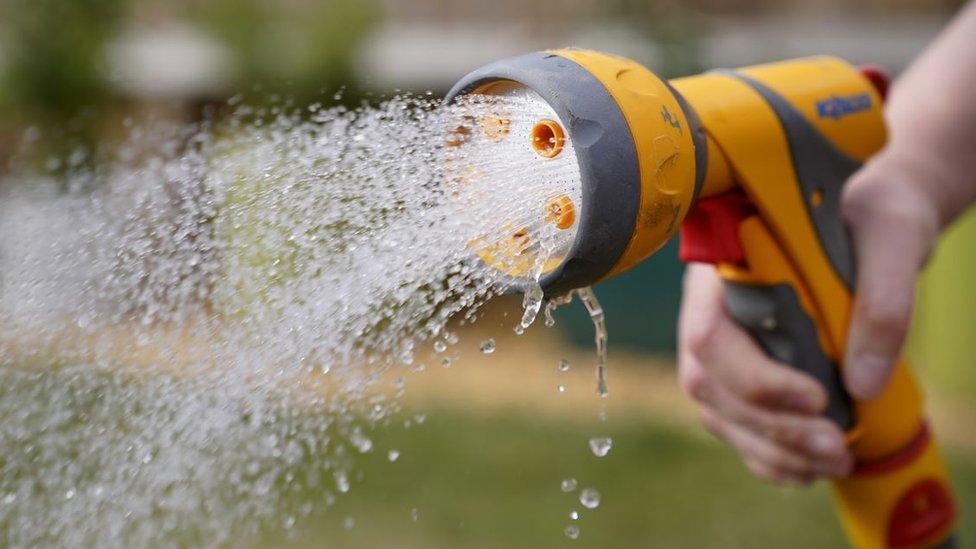
- Published15 June 2023
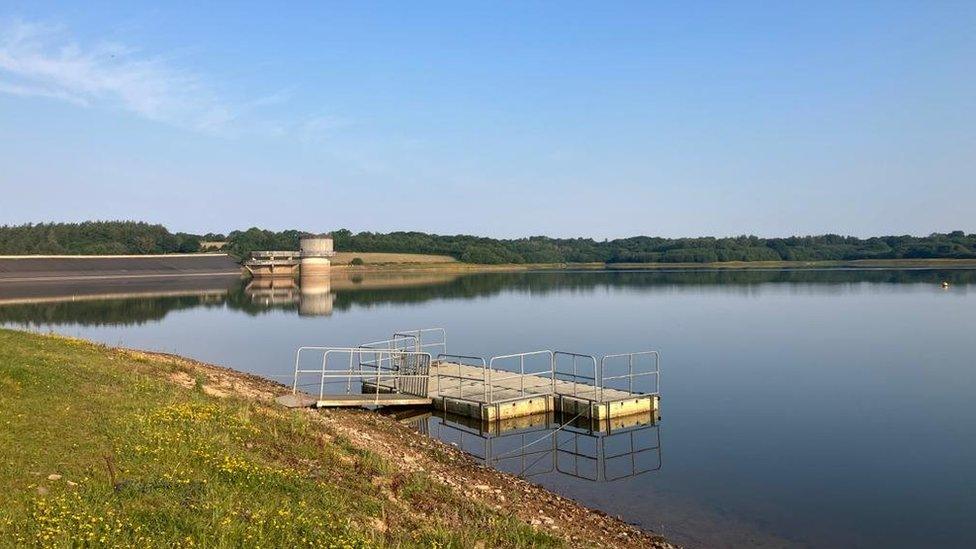
- Published25 April 2023
